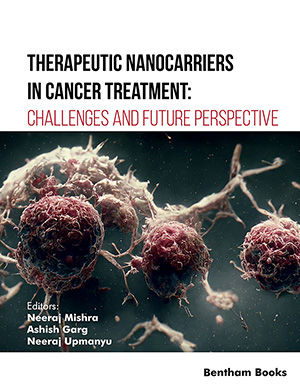Abstract
Nanoparticles are expected to have a broad array of applications, ranging from delivery of therapeutic agents to bio-imaging and, quite lately, personalized treatments, due to their diameter ranging (1-100 nm), which coincides with fundamental biomolecules, such as Genetic material (DNA), significantly increased surface area (1000 m2/g), and remarkable mechanical, electrical, magnetic and photonic characteristics. The capacity to deliver targeted anti-cancer drugs to tumors, cancer detection, their capability to contain hundreds of pharmaceutical units, and their ability to resist dispersion, stability, and tolerance difficulties are all significant benefits of employing nanoparticles as a transporter for chemotherapeutics. Numerous nanomaterials and therapeutic & diagnostic compounds are now conducting clinical tests, and a couple has already received regulatory approval. The “Enhanced Permeation and Retention Effect”, a distinguishing trait of tumor cells, is used to promote controlled administration of chemotherapeutic agents. In contrast to passive targeting, depending on size, the surface of the nano-materials may be changed with a range of ligands that bind with particular receptors highly expressed on the membrane of tumor cells, resulting in precise active targeting. Yet a novel technique for site-specific delivery is using environmental stimulation like heat to a thermo-responsive apparatus to deliver a medicine encapsulated in a nanosized structure at a specified location. This chapter offers information on accepted tumour nanoparticles, such as Oncaspar, Daunoxome, Doxil, Abraxane, and DepoCyt, as well as nanoplatforms utilizing albumin nanospheres, lipoplexes, lipid nanoparticles, liposomes, micelles and gold nanoparticles, which have attained an advanced level of clinical testing.
Keywords: Cancer, Clinical trials, Drug delivery, FDA, Nanoparticles, Regulatory approval.






















